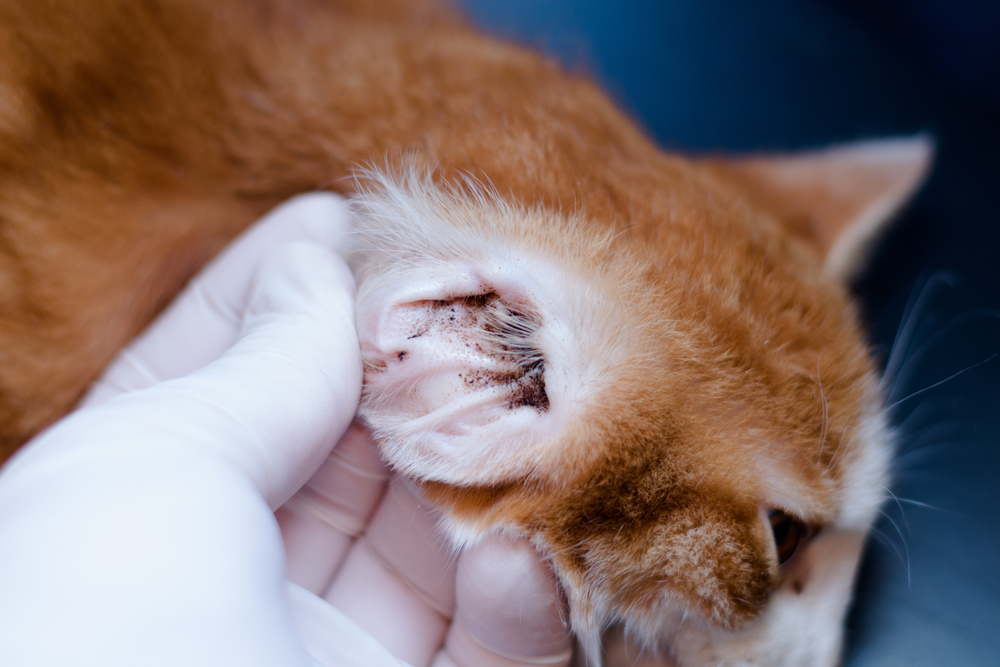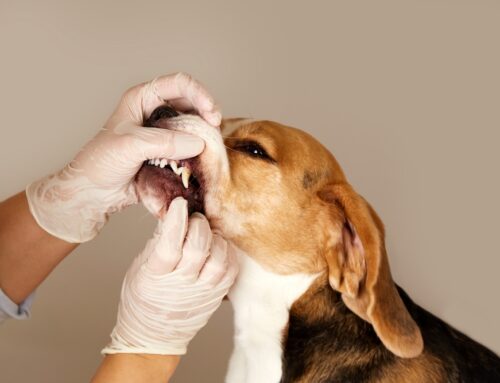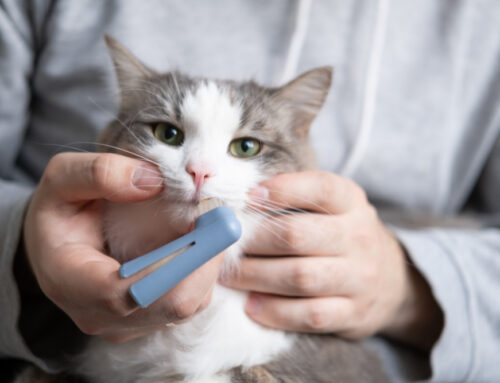Puppies and kittens are susceptible to parasites that can cause significant harm, and parasite prevention is critical for their health. Our Cane Bay Veterinary Clinic team covers common parasites, prevention methods, and the importance of regular veterinary care for your furry youngster.
Common parasites that affect puppies and kittens
Two parasite types—external and internal—are problematic for your pet.
External parasites include:
- Fleas — These small, wingless insects feed on the blood of the host cat or dog. They can cause skin irritation, severe itching, anemia, and allergic reactions and can also transmit the plague, murine typhus, and cat scratch disease. Eliminating fleas from your pet also requires eliminating flea infestations inside your home, which can be extremely difficult and often requires professional extermination.
- Ticks — This parasite is an arachnid that attaches to the host’s skin and can transmit diseases including Lyme disease, anaplasmosis, ehrlichiosis, and Rocky Mountain spotted fever. Some pets are allergic to tick bites, resulting in rashes or inflammation. Tick diseases can have lasting impacts on your puppy or kitten’s health, including organ damage and lameness.
- Ear mites — These microscopic parasites infest the external ear canal, resulting in wax buildup that resembles coffee grounds and causes irritation, intense scratching, and inflammation. Ear mites are prevalent in young pets, free-roaming cats, dogs, and animals in shelters.
Internal parasites include:
- Roundworms — Different roundworm species are common in dogs and cats. Most pets acquire roundworms at some point and show signs that include digestive issues, weight loss, and a pot-bellied appearance. Roundworms are often spread through contact with feces, or by an infected mother who passes them on to her puppies or kittens.
- Hookworms — Named for their hook-like mouths, hookworms are intestinal parasites that attach or “hook” themselves to the pet’s intestinal lining. The minute worms feed off the blood vessels in the pet’s intestinal lining and can cause severe anemia if not treated. Transmission occurs when a dog or cat ingests hookworm eggs in contaminated soil or feces.
- Tapeworms — Tapeworms are segmented worms that live in the intestines and can cause weight loss and gastrointestinal issues. They are typically transmitted when pets eat infected animals, such as rodents, or they ingest fleas while grooming. Young pets who have tapeworms may be lethargic, or have appetite changes, diarrhea, and diminished coat quality.
- Coccidia and giardia – These protozoan parasites found in contaminated soil and water cause severe diarrhea, weight loss, and gastrointestinal upset. Both produce similar signs, but coccidia can do more damage than giardia, because they can destroy the intestinal lining and lead to severe, sometimes life-threatening, dehydration.
Parasite prevention for puppies and kittens

Regular wellness care, including preventive care, by our Cane Bay Veterinary Clinic team, will help ensure your pet’s optimal health and reduce disease risk. Young puppies and kittens require multiple veterinary visits in their first year of life to support their developing bodies. We strongly encourage vaccinations and parasite prevention regimens, since young pets are prone to diseases and infections. Parasite prevention protocols include:
- Regular deworming — Your puppy or kitten should be dewormed regularly, starting at 2 to 3 weeks of age. Our veterinarian will recommend a suitable deworming schedule.
- Flea, tick, and heartworm prevention — Use our veterinarian-recommended flea and tick preventives, along with heartworm medications, for your puppy or kitten. Preventives are available as monthly topical treatments and oral medications. Parasite prevention is an essential lifelong treatment to guard your pet.
- Environmental control — Maintain a clean living environment by regularly washing bedding, vacuuming carpets, and treating your home and yard for fleas and ticks, if necessary. Clean up feces promptly to reduce the risk of parasitic infections.
- Veterinary wellness exams — Regular veterinary visits enable the early detection and prevention of parasitic infections. Our veterinarian will perform fecal and blood tests during your pet’s exam to check for internal parasites.
Parasite prevention is a vital component of puppy and kitten care. Protect your pet from parasitic diseases and infections by following a regular deworming schedule, administering preventives according to their required routine, maintaining a clean environment, and regularly visiting our veterinarian. Contact our Cane Bay Veterinary Clinic team for the best practices and products to keep your pet parasite-free and in good health.






Leave A Comment